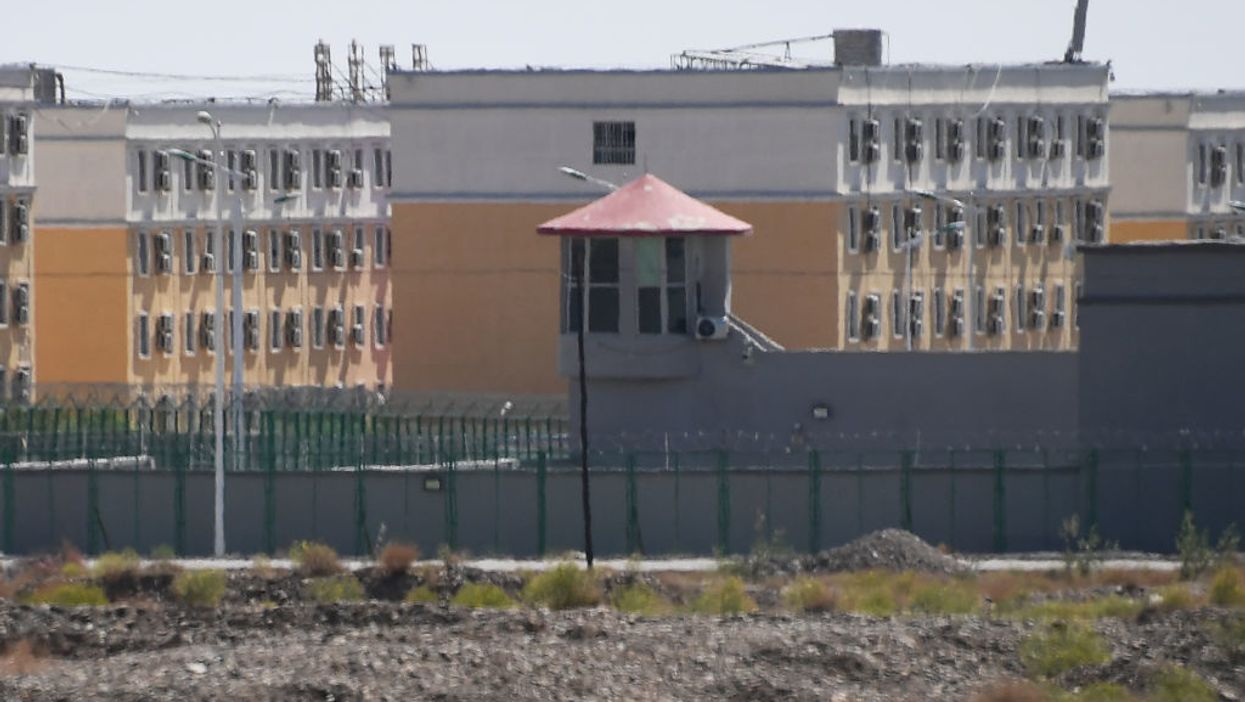
GREG BAKER/AFP via Getty Images

Customs and Border Protection said the seized shipment from China points to 'potential human right abuses of forced child labor and imprisonment'
The U.S. Customs and Border Protection seized a massive shipment of human hair products from China that point to "potential human right abuses of forced child labor and imprisonment." CBP officers at the Port of New York/Newark nabbed a shipment of 13 tons of hair products worth over $800,000, as reported by Axios.
The human hair products, which originated from Xinjiang, China, were seized on Tuesday because of suspicions they were linked to China's Uighur concentration camps. The products included wigs and hair extensions made from human hair.
"If this highly suspicious, 13-ton shipment of human hair indeed turns out to be linked to the Uyghur concentration camps, then this is a new low — even for the Chinese Communist Party," National Security Council spokesperson John Ullyot said.
The hair products were manufactured by Lop County Meixin Hair Product Co. Ltd. and were seized in accordance with a Withhold Release Order on June 17, according to a CBP press release.
"CBP instructed ports of entry nationwide to detain all such products based on information that reasonably indicated that they are manufactured with the use of prison labor," the statement read. "The manufacturing process may include additional situations of forced labor, including, but not limited to, excessive overtime, withholding of wages, and the restriction of movement."
The Chinese government operates "re-education camps" in Xinjiang, located in northwest China. The Chinese Communist Party officially calls the camps "vocational education and training centers."
The labor camps force Uighur and other Muslim ethnic minorities to assimilate under the guise of countering extremism and terrorism. Detainees must attend indoctrination sessions and are forced to work in factories.
In 2018, the United Nations said there are a million ethnic Uighurs held in what resembles a "massive internment camp that is shrouded in secrecy" in China. Randall Schriver, former U.S. assistant secretary of defense for Indo-Pacific Security Affairs, estimated that the number of detained Muslims could be "closer to 3 million citizens."
"The (Chinese) Communist Party is using the security forces for mass imprisonment of Chinese Muslims in concentration camps," Schriver told the Pentagon during a briefing in 2019.
The Tariff Act of 1930 prohibits the "importation of merchandise mined, produced or manufactured, wholly or in part, in any foreign country by forced or indentured labor — including forced child labor. Such merchandise is subject to exclusion and/or seizure, and may lead to criminal investigation of the importer(s)."
"The production of these goods constitutes a very serious human rights violation, and the detention order is intended to send a clear and direct message to all entities seeking to do business with the United States that illicit and inhumane practices will not be tolerated in U.S. supply chains," said Brenda Smith, executive assistant commissioner of the CBP Office of Trade.
Mihrigul Tursun, a member of the Uighur minority in China, provided details of her experience at one of the internment camps, including having her head shaved.
"Mihrigul Tursun, speaking to reporters in Washington, said she was interrogated for four days in a row without sleep, had her hair shaved and was subjected to an intrusive medical examination following her second arrest in China in 2017. After she was arrested a third time, the treatment grew worse," CBS News reported.
CBS reported that Tursun said she spent three months in a "cramped, suffocating prison cell with 60 other women, having to sleep in turns, use the toilet in front of security cameras and sing songs praising China's Communist Party."
Tursun claims that detainees were forced to take unknown medication, including "pills that made them faint and a white liquid that caused bleeding in some women and loss of menstruation in others." Tursun alleges that nine women from her cell died during her three-month imprisonment.
Earlier this week, an Associated Press investigation found the Chinese government is "taking draconian measures to slash birth rates among Uighurs and other minorities as part of a sweeping campaign to curb its Muslim population." The investigation found "widespread and systematic" efforts to reduce the minority population, including state-mandated pregnancy checks of minority women, forced use of intrauterine devices, sterilization, and abortion.
On June 17, President Donald Trump signed into law the Uyghur Human Rights Policy Act of 2020, which enables the U.S. government to freeze the assets of individuals and entities who are responsible for human rights abuses in Xinjiang internment camps. The Uighur Human Rights Policy Act of 2020 passed in the U.S. Senate and House of Representatives by nearly unanimous consent.